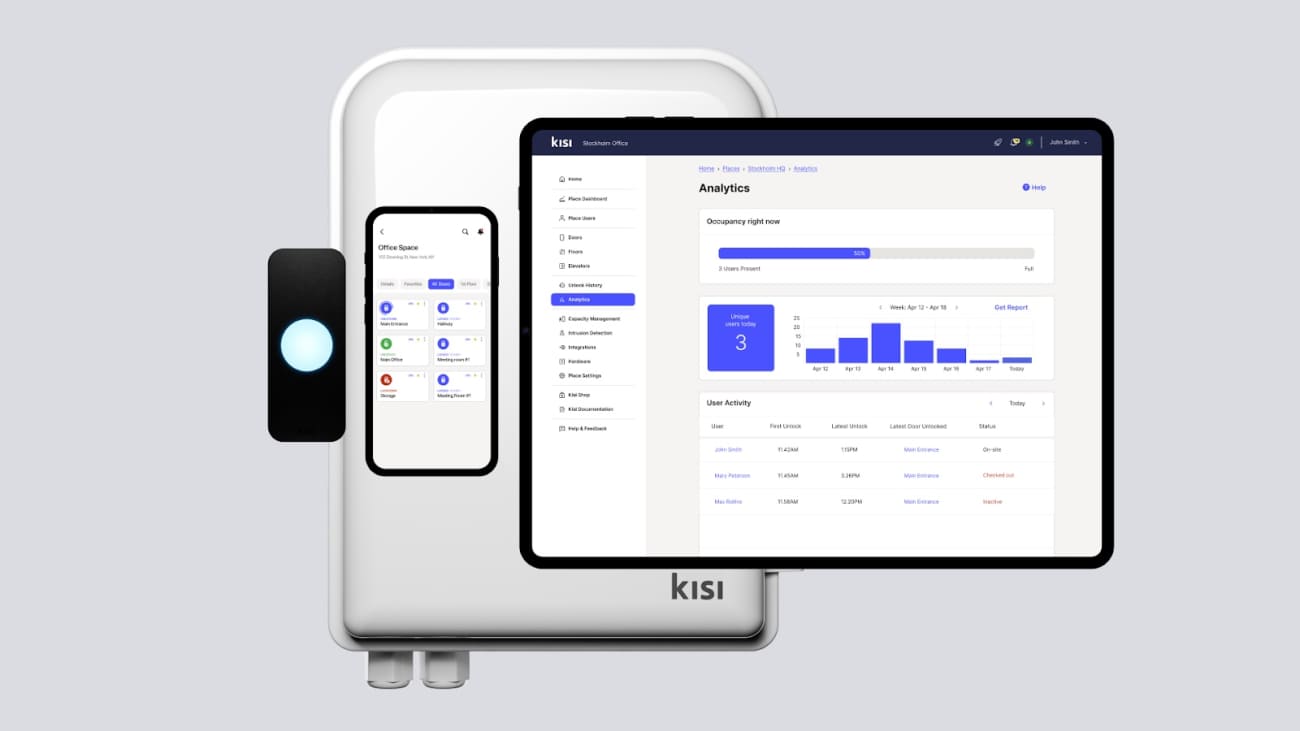Safety and security are top priorities for today’s businesses, and the demand for commercial security systems is rising as a result. Experts project that the market will reach a value of $343.7 billion by 2028, up from $236.3 billion in 2023. Concerns about property theft and violent crime are major drivers behind this growth, but those aren’t the only explanations.
As hybrid and remote work has become increasingly common, many organizations have looked for new ways to monitor and secure their physical locations even when they’re away from the office. Commercial property owners also recognize that they’ll attract more tenants when they offer robust security and access control.
Businesses that don’t have security systems — or who haven’t updated them in a while — are missing out on important protections. Understanding the purpose and benefits of modern commercial security systems is key to ensuring that your business stays secure and productive.
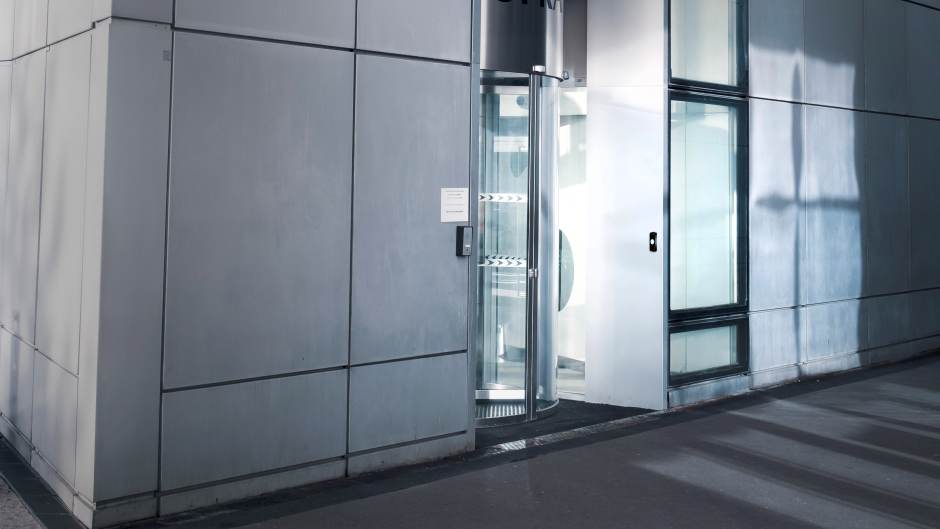
What is a commercial security system? #
The primary purpose of commercial security systems is to protect your business facilities, property, and the people who use them. To achieve this goal, these systems monitor and record security footage in and around your buildings. This deters trespassers and intruders and gives you access to important evidence that law enforcement can use if a crime occurs.
Many modern security systems, however, have capabilities that go far beyond surveillance. They also allow you to control access to your buildings, communicate with guests, and quickly connect with emergency services.
Some of the most common components of these systems include:
The specific design of your system and which of these items you use depends on the size and structure of your business, your primary security concerns, and the layout of your property.
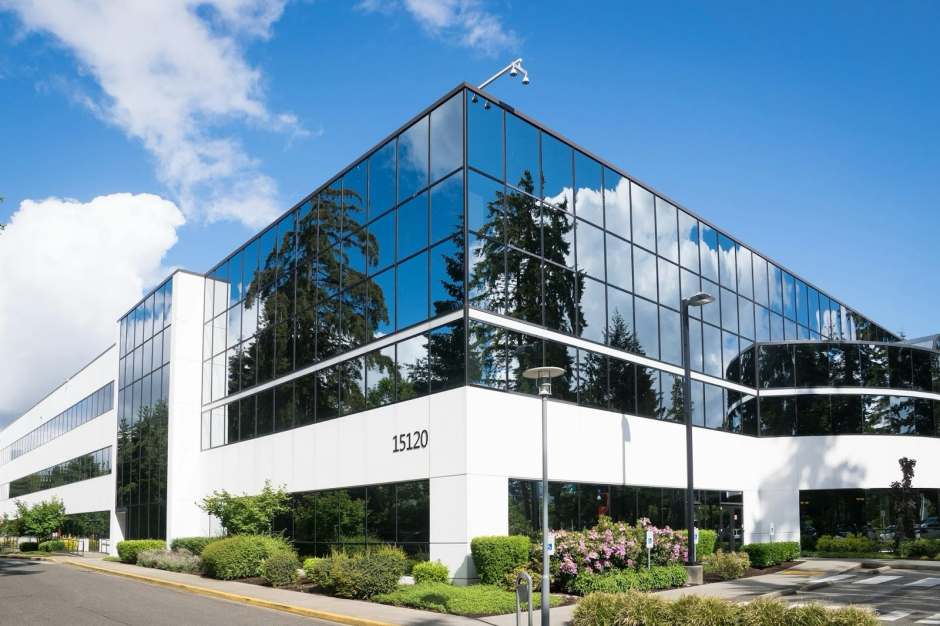
Why do businesses need commercial security systems? #
Safeguarding the people and assets that keep your business running is complicated, especially when you also want to respect worker privacy, accommodate hybrid work schedules, and create a welcoming atmosphere for customers. Modern business security systems empower you to address potential threats while streamlining operations and maintaining a safe and comfortable environment.
Security risks for businesses #
Businesses face a variety of threats from both internal and external forces, and theft and vandalism are generally at the top of the list. Property damage is common in business parking lots, which are often unguarded and open to the public. When no one is watching, criminals have the perfect opportunity to damage, steal, or vandalize vehicles and other business property.
Worries about theft also extend within the walls of your business. No matter what type of commercial space you operate, you probably have something on hand that would appeal to criminals, whether it’s a desktop computer or a high-value material you process. With approximately 42,100 burglaries in commercial and office buildings in 2022, stolen property is a legitimate concern.
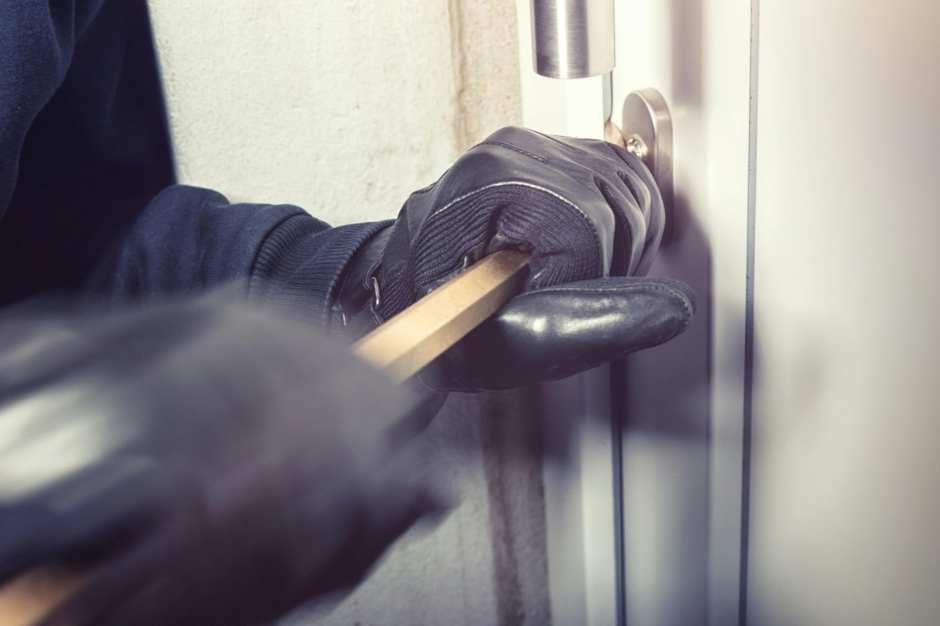
A physical intrusion into your business can also serve as a pathway toward a data breach. Criminals can gain access to your business’s sensitive or proprietary information by stealing physical items, such as:
- Paperwork and files
- Laptops
- Phones
- Storage drives
When they fall into the wrong hands, these documents and devices could provide an entryway to your network, resulting in data loss, leaked information, and bribery.
Fires are another common fear for commercial property owners. Whether they’re intentional, accidental, or due to natural causes, they can damage your property and put human lives at risk. A 2022 report revealed that there were more than 125,000 fires in non-residential structures over the past year, causing millions in damage.
Benefits of installing a commercial security system #
While all these risks are valid cause for concern, the good news is that commercial security systems can mitigate them. Some of the advantages of adding a system to your property include:
- Increasing safety: With a well-designed security system, you can neutralize threats more quickly by locking doors or contacting emergency responders.
- Controlling building access: You can monitor who enters and leaves your building and grant or revoke access to visitors and employees.
- Deterring crime: Vandals, arsonists, and other criminals are less likely to damage your property when they see that you’re watching them with security cameras.
- Lowering insurance costs: Insurance companies offer reduced rates for businesses that have security systems because they’re less likely to file claims for stolen or damaged property.
- Compliance: An effective system also helps you maintain compliance with security and access control regulations and standards.
- Streamlining operations: A system of integrated security, access control, and operational software and devices automatically carries out tedious but important tasks, including managing visitors and accepting deliveries.
In combination, all these benefits also create a more positive environment for your business. When employees, visitors, and guests know that you value their health and safety, they’ll have greater respect for your organization and are more likely to trust you.
Types of commercial security systems #
Security systems aren’t a one-size-fits-all solution. For example, what works for a small office space might be insufficient for a sprawling manufacturing facility. To design the right system for your business, you’ll need to know exactly what options you have and what elements you can include.
Access control systems #
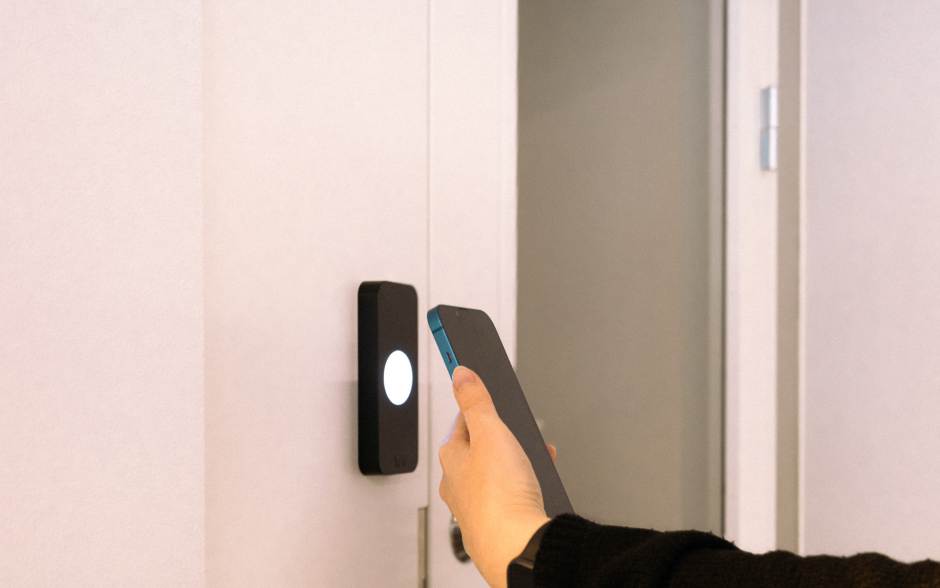
Access control systems are a significant upgrade over traditional locks and keys, which are easy to bypass and misplace. You can place an access control reader at outdoor entrances or interior doors to allow people to enter specific spaces within a building.
To open a door, employees can use different access methods, including:
- Mobile devices
- Keycards
- Fobs
- Biometrics
- Motion
After the employee presents their credentials, the system transfers the information over a secure network, validates their identity, and triggers the lock. Visitors and guests who don’t have long-term access can request it using an intercom. Some modern access systems, like Kisi, also offer temporary visitor links that can be easily sent via email or text message.
Kisi’s access control systems also offer other valuable features. You can create door schedules for specific doors or groups and receive mobile notifications and intrusion alerts for forced entry or unauthorized access. If you’re away from the building and suddenly need to lock the doors, you can also initiate a remote lockdown.
Video monitoring systems #
Video cameras have long been a part of commercial security systems, but they’ve evolved to become much more useful and effective. A video monitoring system allows you to see real-time activity in different areas of your property and capture footage of suspicious or criminal activity.
Many businesses place cameras in particularly vulnerable spaces, such as elevators, parking garages, and front doors. These cameras transmit constant feeds to recorders located in the building or on a cloud service. A security team can review and analyze the images and respond to questionable activity before it escalates.
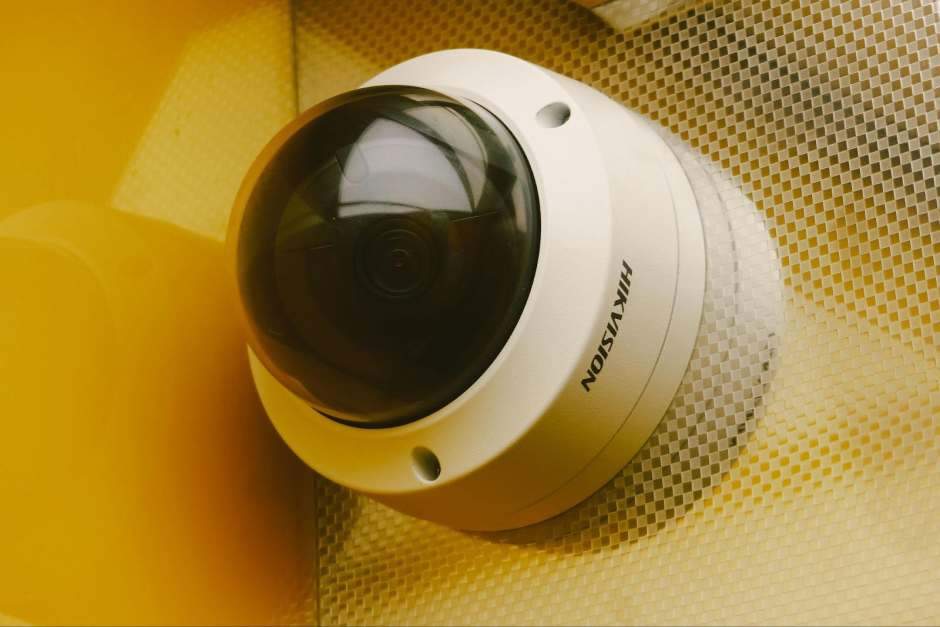
Security cameras are capable of capturing high-definition images that make it easier to accurately identify the people on screen. Some video monitoring systems have additional tools for that same purpose, such as:
- Motion detection
- Facial recognition
- License plate recognition
Many video monitoring systems also allow remote access. You can view livestreams and recordings using a smartphone app or internet browser. If you have a security guard or team, they can use this feature to monitor buildings when they’re away from the video surveillance control room.
By integrating your video surveillance system with an access control system like Kisi, you can easily monitor and review door activity at building entrances or secured internal rooms. Because Kisi’s access control is cloud-based, you can open the dashboard from any location to view current or past incidents, including authorized or unauthorized entries or attempted break-ins.
Alarm systems #
Sensors and alarms work together to alert staff and emergency services when an incident occurs. Some are designed for potentially life-threatening natural hazards, such as fires or gas leaks. When a sensor detects the presence of smoke or carbon monoxide, for example, it triggers an alarm with a siren that lets people in the building know they should evacuate.
Fire alarm systems are especially important for businesses that aren’t staffed 24 hours a day. If a fire starts overnight or outside of regular operating hours, it can spread quickly through the building before anyone realizes what’s happening. An alarm system notifies the fire department so they can tackle the flames before they cause too much damage.
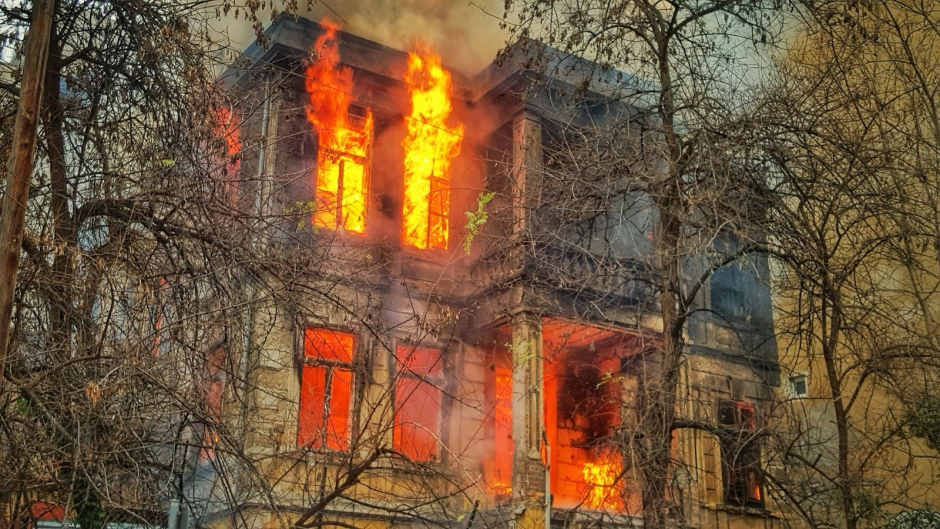
For break-ins, businesses use intrusion detection alarm systems that notify security teams, police departments, and business personnel when someone forces their way into a building. Placing sensors in external doors or windows is common practice, but some businesses also set up additional alarms for data storage rooms, safes, and other areas that might hold especially valuable items. These systems often have strobe lights and sirens to scare intruders away.
Kisi offers native intrusion detection to set off an alarm and send you a mobile notification if an intruder is present. Using a system of sensors, the system will immediately trigger if someone forces open a door, enters a secured area, or attempts to unlock a door without the proper credentials.
Five factors to consider when choosing a commercial security system #
A commercial security system is a major investment, so it’s vital to find one that fits your business’s needs. Before buying or upgrading a system, think about these key points:
- Integration: Determine whether you can combine access control devices with cameras, sensors, software platforms, and coworking apps. A system like Kisi’s with flexible integrations allows you to manage your entire system in one place.
- Features: Look for features that will make your system both more convenient and effective. Possible options include remote management, video analytics, heat mapping, and night vision.
- Infrastructure: Some systems require extensive on-site hardware and servers for data storage. Others are wireless and cloud-based, storing information remotely and minimizing the amount of equipment you’ll need.
- Customer support: If your security system suddenly malfunctions, getting it back up and running as soon as possible is essential. Look for a system provider that offers extended support hours and access to resources so you can troubleshoot on your own when necessary.
- Cost: Look for a security system that fits your budget and needs. Kisi offers a variety of deployment options, including installing an entirely new system or upgrading the one you already have in place, to ensure you can keep your property safe.
Balancing these different aspects of a system can be challenging. Try to prioritize the points that are particularly important for your property and that you believe will offer the most value in the long run.
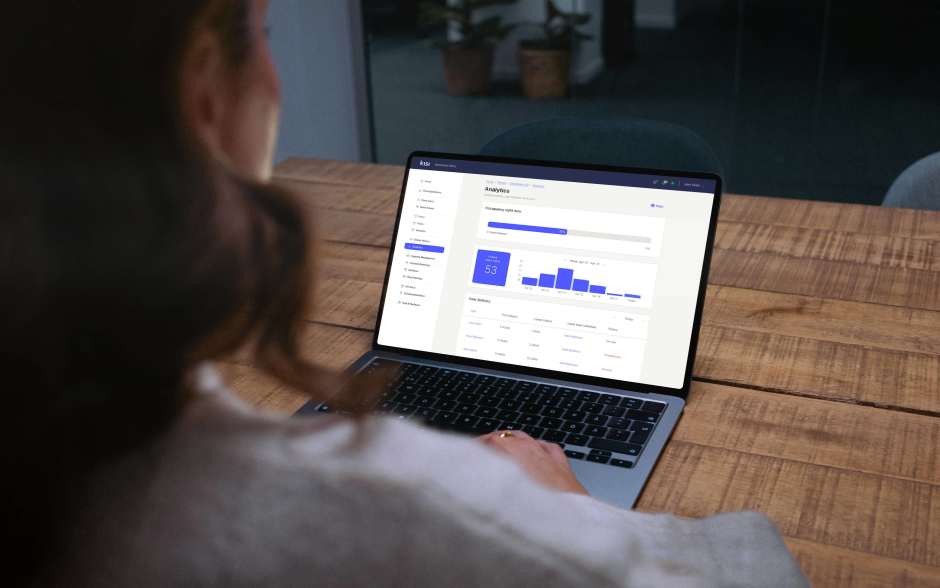
Keep your business safe with Kisi #
The best commercial security systems protect your property, employees, customers, and guests without making life harder for them. They dissuade intruders and offer a simple, straightforward way to grant or deny access to anyone who wants to enter your business.
Ready to see the role Kisi can play in your commercial security system? Book a demo to see our security and access control solutions in action.



